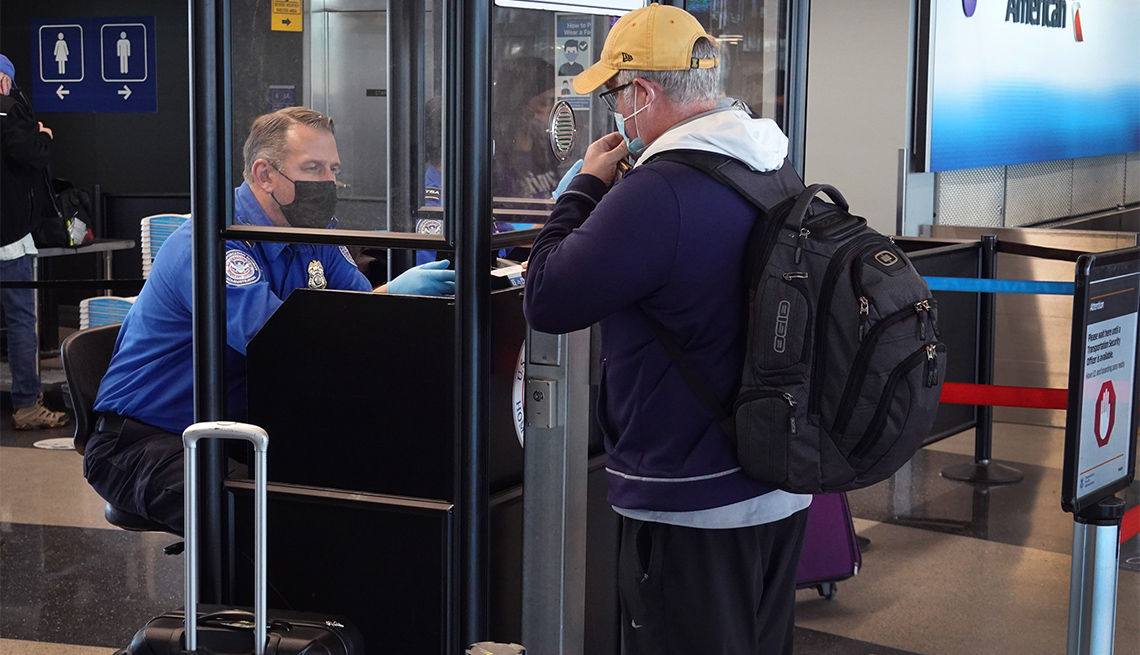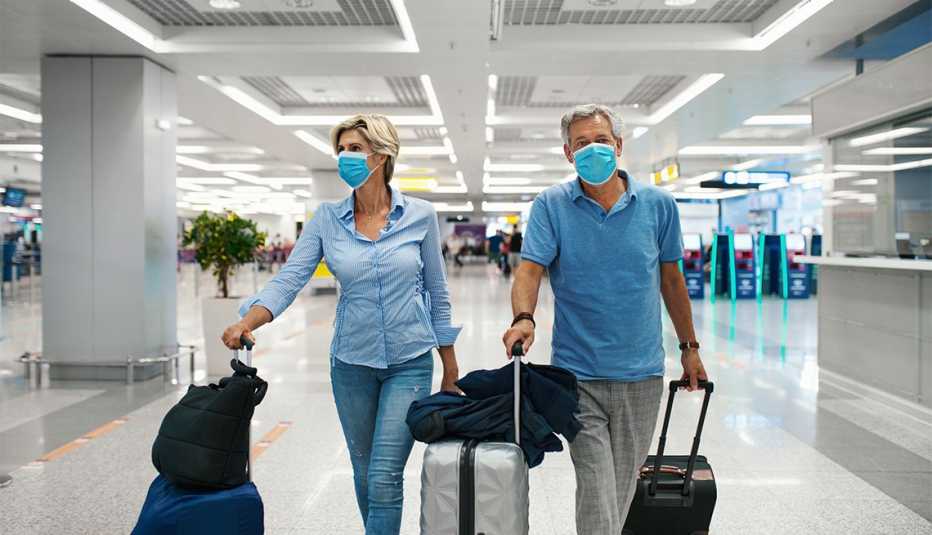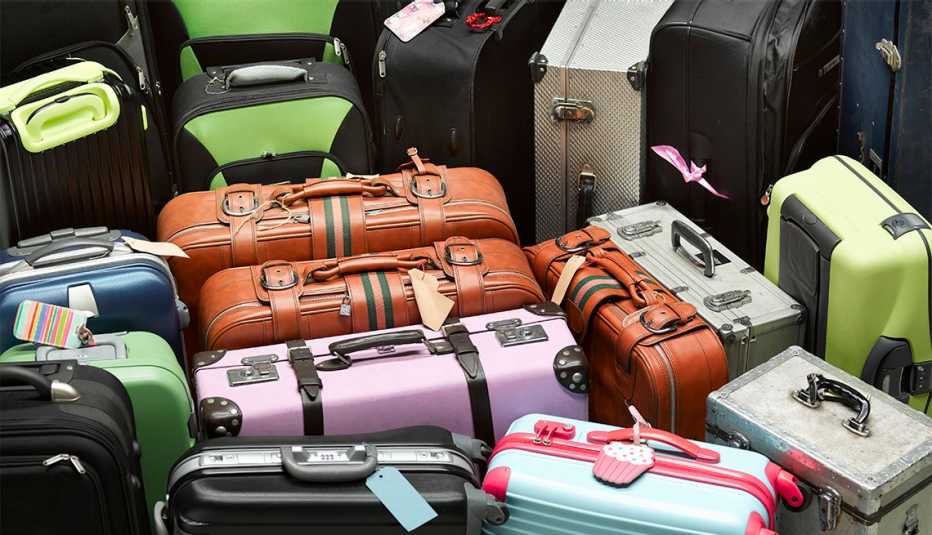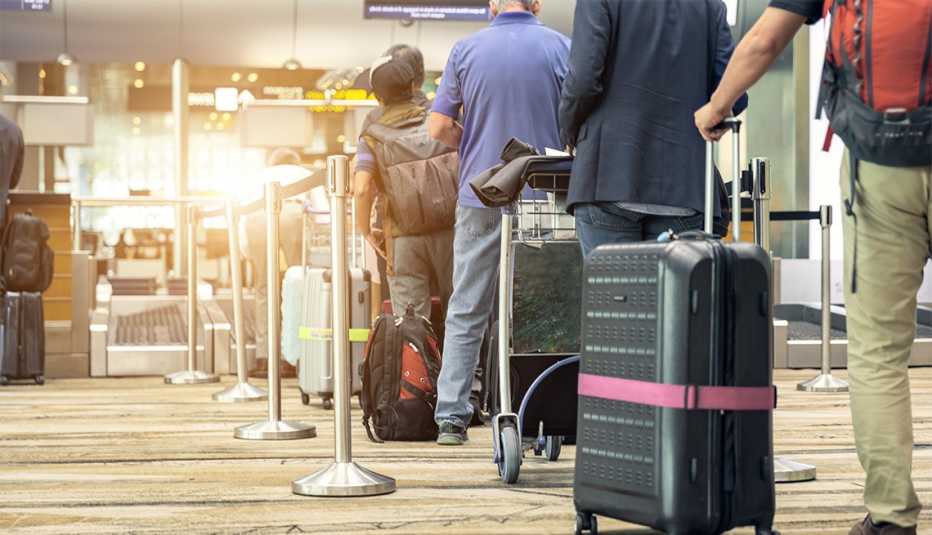Staying Fit
The Transportation Security Administration (TSA) continues to use a range of procedures to keep contact to a minimum for both TSA agents and fliers who go through security screening as the pandemic continues.
But it’s also asking the public for patience, courtesy and compliance due to the combination of staff shortages and a growing number of passengers passing through security this winter; the number of airline passengers screened by the TSA each day has risen substantially in the past few months — more than 1.9 million people passed through airport security on Dec. 13, for example. That’s nearing the approximately 2.25 million who did so on Dec. 13, 2019, and a huge leap from the 752,000 who flew on Dec. 13, 2020.


AARP Membership— $12 for your first year when you sign up for Automatic Renewal
Get instant access to members-only products and hundreds of discounts, a free second membership, and a subscription to AARP the Magazine.
With the holiday season upon us, TSA Administrator David Pekoski said in a recent statement that travelers should “plan ahead, remain vigilant and practice kindness.”
TSA and other officials are increasingly concerned about traveler behavior, during screening and in the air. The airline industry is calling for more serious prosecution of the growing number of passengers who are disruptive, sometimes violently. Since the middle of January 2021 through Dec.7, there have been more than 5,550 reports of unruly passengers, at times involving physical assault, according to the Federal Aviation Administration. Those include nearly 4,000 incidents related to passengers’ compliance with the federal face mask mandate. (The FAA has a new online video featuring children instructing adults on how to behave maturely.)
By law, passengers over the age of 2 must wear a face mask in the airport and on the plane, at least through March 18, 2022. Those who fail to comply will be prevented from entering the screening area, and subject to fines, which the federal government recently doubled (fines now range from $500 to up to $3,000 for repeat offenses).
The TSA screening officer at the travel document checker station will likely ask you to briefly lower your face mask to verify your identity.
TSA officers will also be wearing masks and gloves (they’ll change them after any passenger pat-downs), and the agency has installed acrylic barriers between officers and travelers in some cases. It has also embraced new technology that prevents agents from having to touch bags; the computed tomography (CT) units can provide detailed 3-D images of a carry-on bag’s contents.
Since the beginning of the pandemic, the TSA has had 11,518 federal employees test positive for COVID-19, and 33 have died after contracting the virus.


































































